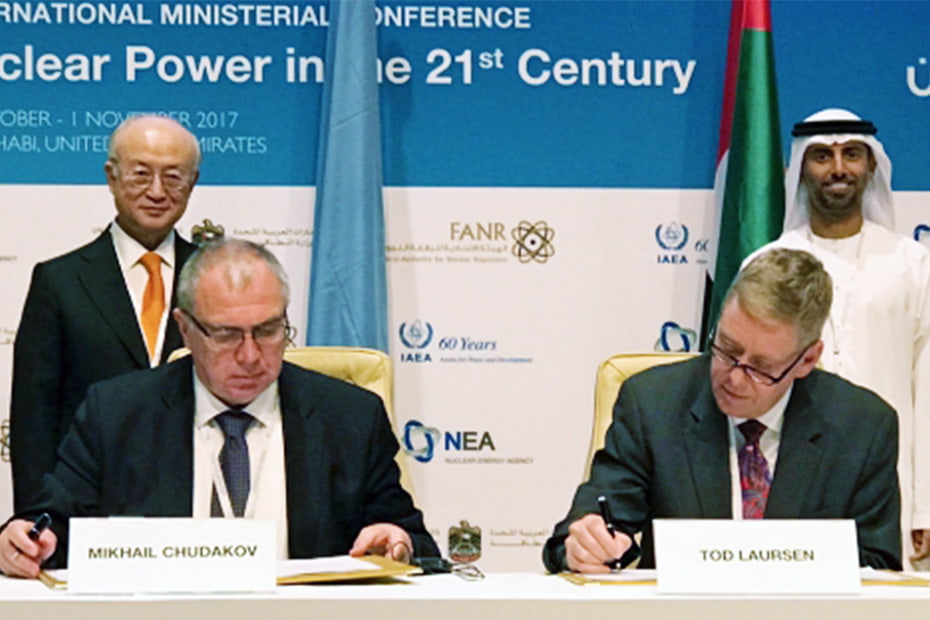“We at Khalifa University are honored by the IAEA designation of Khalifa University as an IAEA Collaborating Centre. From the time we signed our first Practical Arrangements with the IAEA in 2010 until now, we have engaged with the IAEA on human resource development through our Gulf Nuclear Energy Infrastructure Institute (GNEII) program and hosting of the joint IAEA-KU NEM Schools. We look forward to enhancing our offerings in this area, both within the UAE and to support IAEA Member States.”
Under the agreement, the University, in collaboration with the IAEA, will develop and implement specific courses, including modules for the GNEII programme, to train professionals in nuclear safety, security, safeguards, stakeholder involvement, legal and regulatory framework and other areas. A fellowship programme, including mentoring, will help fellows gain experience in specific areas of interest in embarking countries. In addition, the University will provide experts to support review missions, training courses and technical meetings organized by the IAEA. The University’s activities as an IAEA Collaborating Centre will be supported by key organizations involved in the UAE’s nuclear power programme, such as the Federal Authority for Nuclear Regulation (FANR), Emirates Nuclear Energy Corporation (ENEC), Nawah Energy Company, the National Emergency Crisis and Disaster Management Authority NCEMA and the Critical Infrastructure and Coastal Protection Authority (CICPA). Dr Arif Sultan Al Hammadi, Interim Executive Vice President, Khalifa University, said:
“Khalifa University for Science and Technology plays an important role in promoting the country's emerging nuclear energy sector by supplying it with highly qualified national talents, who are capable of realizing the vision of the UAE’s leadership in achieving the highest standards of excellence. The selection of Khalifa University as a center for collaboration with the IAEA is evidence of the University's established level of expertise in the nuclear energy and its safety.”
He also added, “The inclusion of all these stakeholders highlights the UAE leadership's commitment to working closely with the IAEA, and strengthens the UAE model as a new entrant to nuclear power, by sharing good practices and knowledge with other IAEA member states.”
“The Agency appreciates the strengthened cooperation with Khalifa University,” said Mikhail Chudakov, IAEA Deputy Director General and Head of the Department of Nuclear Energy, who signed the agreement for the IAEA. “It will enable professionals from embarking countries to benefit from the know-how which the UAE has developed by building the infrastructure, licensing and constructing its first nuclear power plant in line with the IAEA Milestones approach.”
Khalifa University hosted the IAEA Nuclear Energy Management (NEM) School in the UAE earlier this year, in collaboration with the FANR, ENEC and Nawah. Participants included 56 young UAE professionals from ENEC, Nawah, FANR, CICPA and NCEMA, as well as participants from both Saudi Arabia and Malaysia.


